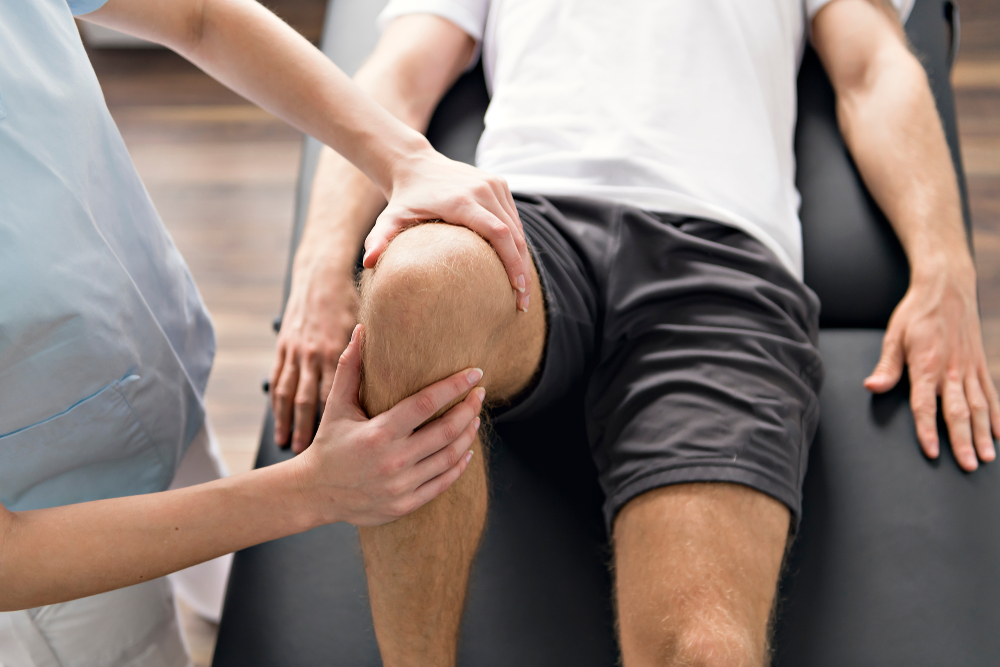Empowering Seniors: Non-Surgical Options for Treating Osteoarthritis in Knees
As we age, our bodies go through various changes, and one common condition that affects many seniors is osteoarthritis. Osteoarthritis is a degenerative joint disease that primarily affects the knees, causing pain, stiffness, and reduced mobility. In the past, the primary treatment option for osteoarthritis in knees was surgery. However, advancements in medicine and healthcare have led to the development of non-surgical options that can effectively manage the symptoms of osteoarthritis and improve the quality of life for seniors.
Non-surgical options for treating osteoarthritis in knees are designed to reduce pain, improve joint function, and slow down the progression of the disease. These options can be particularly beneficial for seniors who may not be suitable candidates for surgery or prefer non-invasive treatments. Let's explore some of the non-surgical options available for empowering seniors with osteoarthritis in their knees:
1. Physical Therapy
Physical therapy is a non-surgical approach that focuses on exercises and techniques to improve joint function, strengthen muscles, and increase flexibility. A physical therapist will work closely with seniors to develop a personalized treatment plan that addresses their specific needs and goals. Through regular physical therapy sessions, seniors can experience reduced pain, improved mobility, and better overall knee function.
2. Medications
Various medications can be prescribed to seniors with osteoarthritis to manage pain and reduce inflammation. Over-the-counter pain relievers, such as acetaminophen and non-steroidal anti-inflammatory drugs (NSAIDs), can help alleviate mild to moderate pain. For more severe pain, prescription-strength medications may be recommended, including opioids or corticosteroids. It is important for seniors to consult with their healthcare provider before starting any medication to understand the potential risks and benefits.
3. Injections
Injections can provide targeted relief for seniors with osteoarthritis in their knees. Two common types of injections used are corticosteroid injections and hyaluronic acid injections. Corticosteroid injections help reduce inflammation and relieve pain, providing short-term relief. Hyaluronic acid injections, on the other hand, help lubricate the knee joint and improve shock absorption, providing longer-lasting relief. The frequency of injections will depend on the individual's condition and response to treatment.
4. Assistive Devices
Assistive devices, such as braces, can provide support and stability to seniors with osteoarthritis in their knees. Knee braces can help reduce pain, improve stability, and facilitate proper alignment of the joint. Other assistive devices, such as canes or walkers, can also be beneficial for seniors who experience difficulty walking or have balance issues. These devices can empower seniors to maintain their independence and improve their overall mobility and functionality.
5. Weight Management
Maintaining a healthy weight is crucial for seniors with osteoarthritis as excess weight puts additional stress on the knees. Seniors may be advised to engage in regular physical activity and adopt a balanced diet to achieve and maintain a healthy weight. Losing weight can help reduce pain and inflammation in the knees, improve joint function, and slow down the progression of osteoarthritis.
6. Acupuncture
Acupuncture is an alternative therapy that involves the placement of thin needles at specific points in the body. This ancient practice is believed to stimulate the body's natural healing responses and promote pain relief. Many seniors with osteoarthritis find acupuncture to be an effective complementary treatment option that helps reduce pain and improve joint mobility.
By exploring these non-surgical options, seniors with osteoarthritis in their knees can receive effective treatment that empowers them to manage their condition and improve their overall quality of life. It is important for seniors to consult with their healthcare provider to determine the most suitable treatment plan based on their individual needs and medical history.
